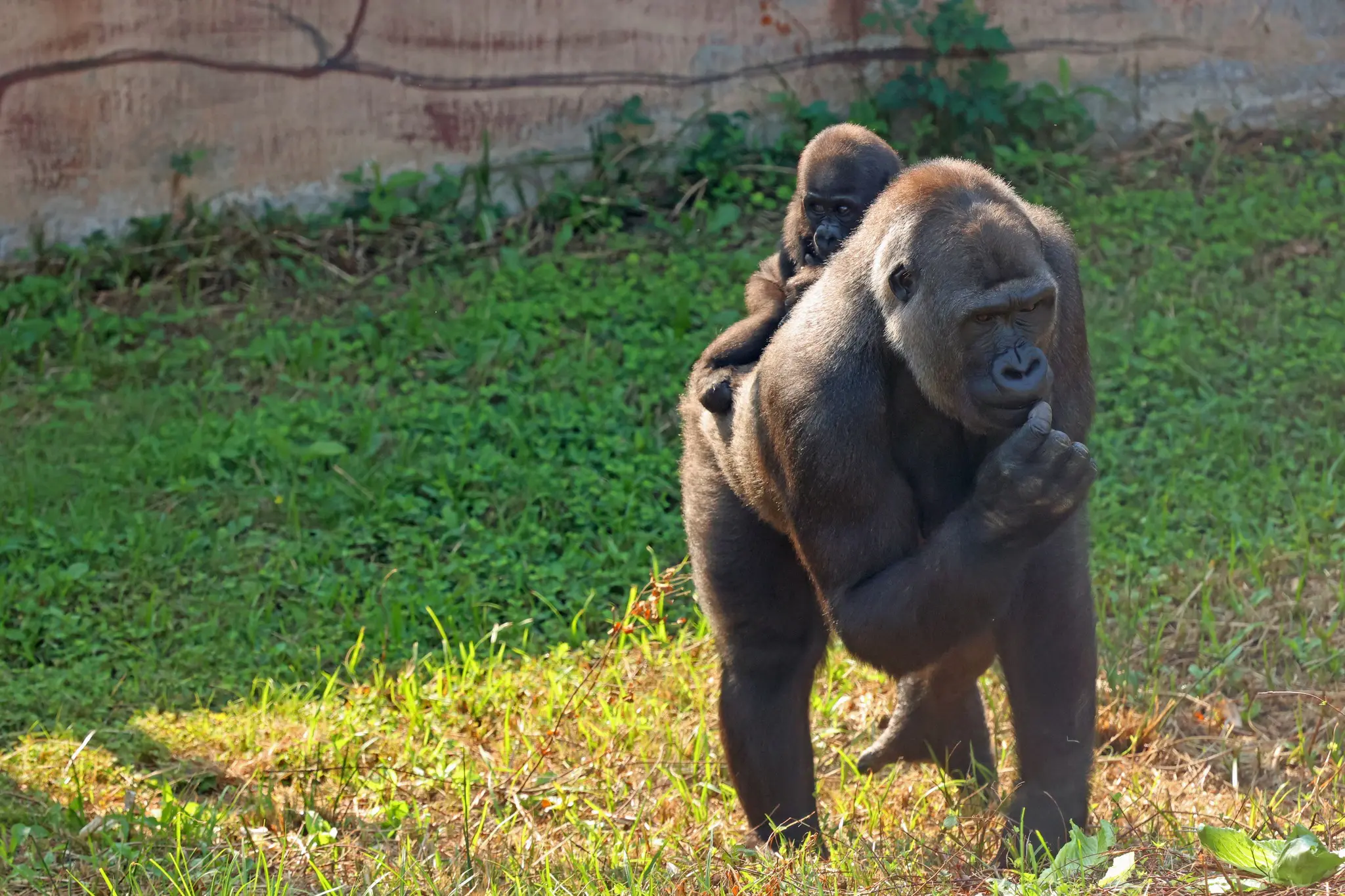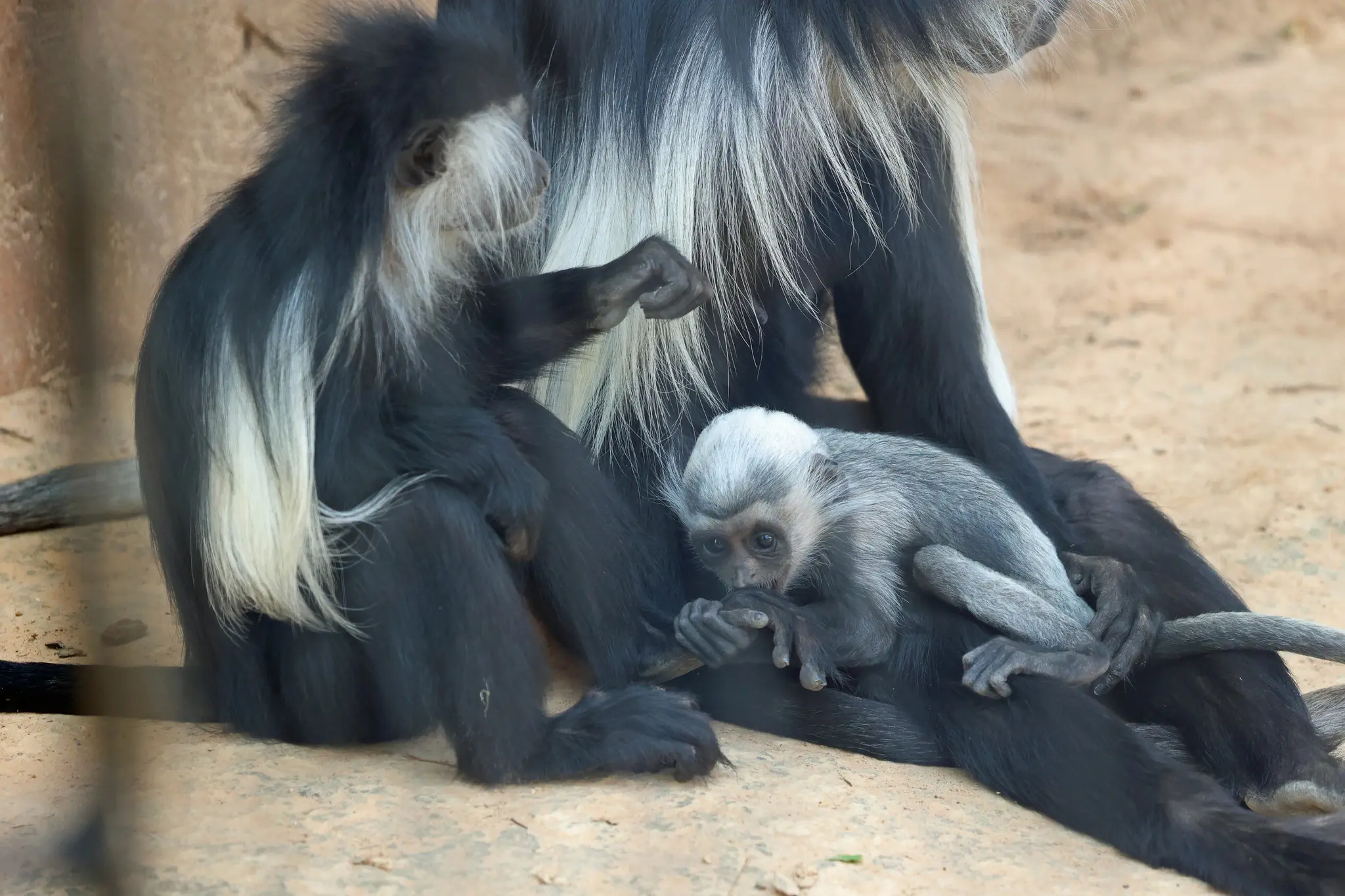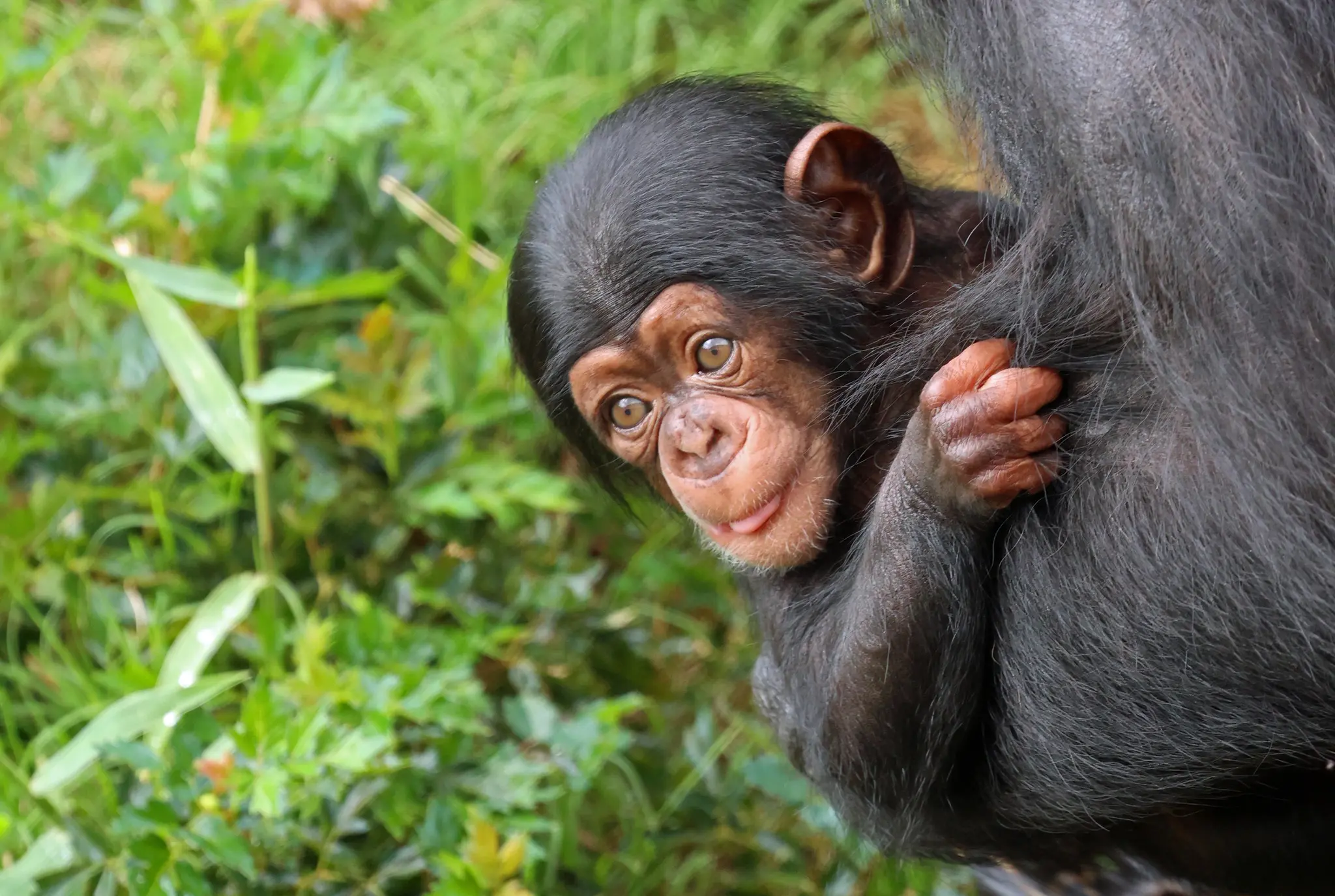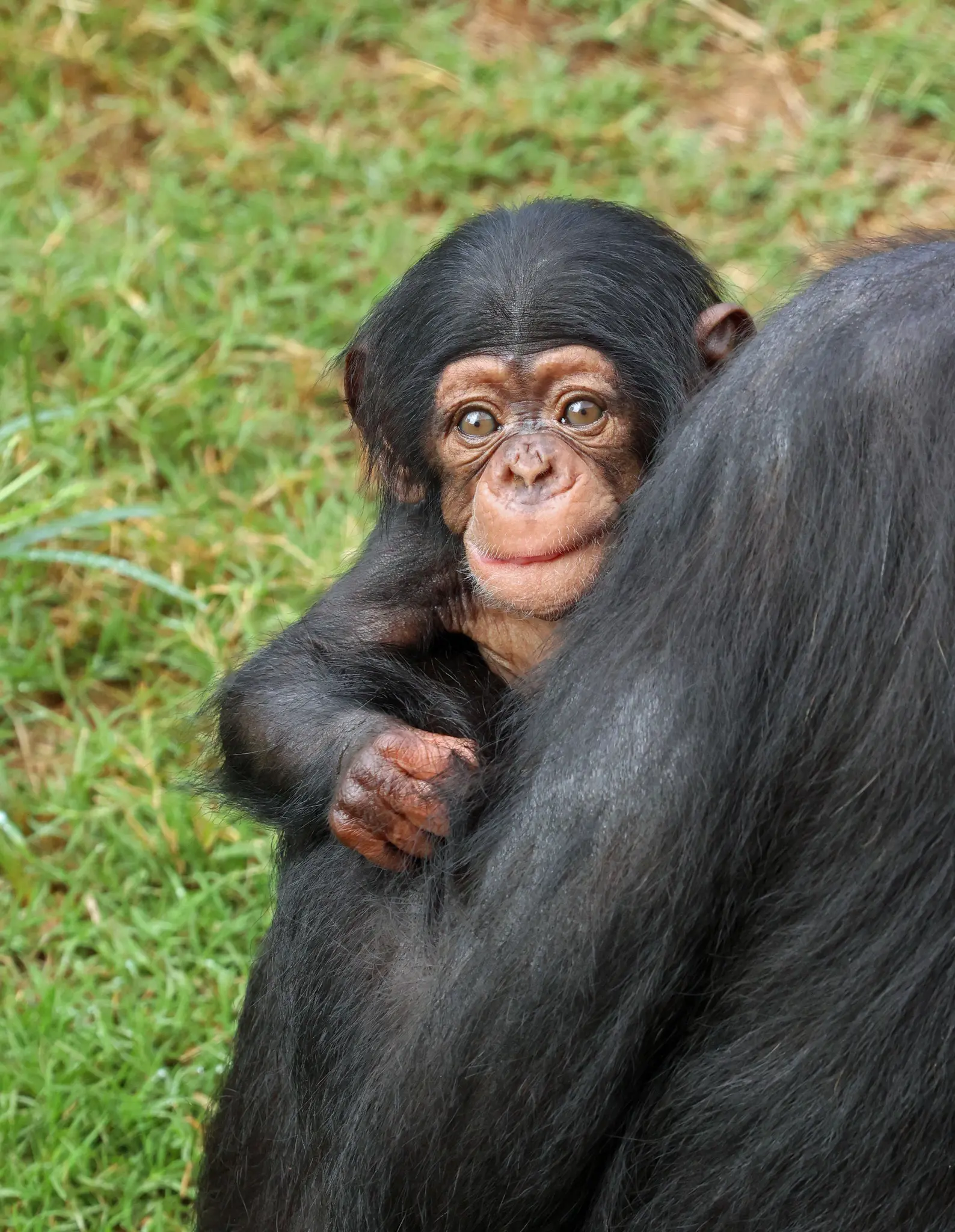LITTLE ROCK (October 9, 2025)— It feels like just yesterday we were celebrating the exciting arrivals of some very special new faces at the Little Rock Zoo—Beni the gorilla, Kito the colobus monkey, and Amali the chimpanzee. Each one represents an important addition to their species and to our Zoo family, and they’re all growing up fast!

Beni the Gorilla
Born in March 2025, Beni’s arrival was met with excitement and even garnered national attention as his birth was celebrated on the TODAY Show, where a national audience helped choose his name. Since then, he’s continued to grow strong and meet milestones expected for a young western lowland gorilla.
One of the biggest steps in Beni’s development has been learning to “back ride.” In gorilla troops, infants spend their first few months clinging to their mother’s chest, relying on her for constant support and security. As they grow and gain strength, they transition to riding on their mother’s back—a key developmental stage that allows them greater mobility and independence while still staying safe and close to mom.

Back riding helps young gorillas build coordination and balance as they learn to move with their mothers across varied terrain. It also provides valuable opportunities to observe and engage with the rest of the troop, which is essential for social learning. Beni has now gotten the hang of this natural behavior and can often be seen on his mother’s back as she moves through the habitat.
Keepers say Beni is becoming increasingly curious and social. He’s begun showing more interest in his father, Kivu, the 400+ pound silverback who leads the troop, as well as the two other females in the group. While Kivu remains appropriately cautious around Beni, his calm and measured behavior reflects an awareness of Beni’s small size and stage of development.
Beni’s mother, Adelina, has also started giving him more freedom to explore, and he’s making the most of it. One of his favorite enrichment items is paper, which he happily crinkles, tears, and plays with whenever he gets the chance. He’s also begun seeking out more interaction with his animal care team and testing his boundaries within the troop. In fact, he recently started biting his mother when she doesn’t hand over what he wants quickly enough—a bit of mischief that’s perfectly normal for a growing gorilla learning social cues and communication.
Kito the Colobus Monkey
Born in July 2025, Kito has brought a burst of energy and excitement to the Colobus Monkey troop. Colobus monkeys are known for their elegant black-and-white coats and graceful leaps through the trees—but they don’t start out that way. Infants are born completely white, which helps adults in the troop easily recognize and care for them. Over the next few months, their fur gradually shifts to the iconic black-and-white pattern that defines the species.


Kito’s transformation is already well underway—his once snow-white fur is giving way to bold patches of black and silvery white, offering guests a front-row view of this remarkable natural change. This color transition not only signals his growth but also his increasing independence within the troop.
At just a few months old, Kito has begun to interact more with his older sister, Jini, learning essential social and motor skills through play, though he’s not as keen on big brother just yet. These playful chases, gentle tugs, and mock wrestling matches may look like fun (and they are), but they also teach young colobus monkeys’ coordination, balance, and social boundaries—skills they’ll need as adults navigating life in a close-knit troop.
Keepers say he’s growing more confident by the day, exploring the habitat and spending more time away from mom and interacting with other members of the troop. Guests can often spot him testing his jumping skills or tagging along with his older siblings.
Amali the Chimpanzee
And then there’s Amali, the newest arrival—a chimpanzee born in August 2025. Still in the earliest stages of life, Amali spends most of her time nestled in her mother’s arms. In the wild, young chimpanzees remain in constant contact with their mothers for many months, relying on them for protection and learning. This strong maternal bond is a vital foundation for their social and emotional development.

Even at this young age, Amali’s curiosity is beginning to shine through. Keepers say she’s eager to be more adventurous, but her mother, Kianga, isn’t quite ready to let her wander too far just yet. Described affectionately as a “helicopter mom,” Kianga is extremely protective and attentive, ensuring her little one stays close. Her dedication is a wonderful example of chimpanzee maternal care—Kianga is a phenomenal mother who takes her role very seriously.
The other chimps are curious about Amali and gentle when interacting with her, Jumoke has been seen holding her hand and Kendi carefully grooming her head.

As her strength and coordination improve, Amali will gradually begin to explore—first reaching out to grasp nearby objects, then venturing a few cautious steps away while still keeping close to her mother. These early interactions mark the beginning of her lifelong learning process. Young chimpanzees acquire most of their skills by observing and mimicking others in the troop—how to groom, communicate, and eventually use tools. Each milestone, from sitting up independently to playing with peers, plays a crucial role in preparing her for a complex social life within the group.
For now, guests may spot Amali nestled in her mother’s arms or peeking out curiously at her surroundings. As she continues to grow, her playful personality will emerge more, giving visitors a special glimpse into the remarkable early development of this fascinating species.
From playful antics to exciting developmental milestones, each of these young primates is growing quickly—and there’s no better way to see it than in person. Stop by the Great Apes area to watch Beni the gorilla and Amali the chimpanzee, and be sure to visit Kito with his lively troop between the Cheetah Outpost and Rhino exhibits. Every visit offers something new to discover, —come watch them grow with us!



